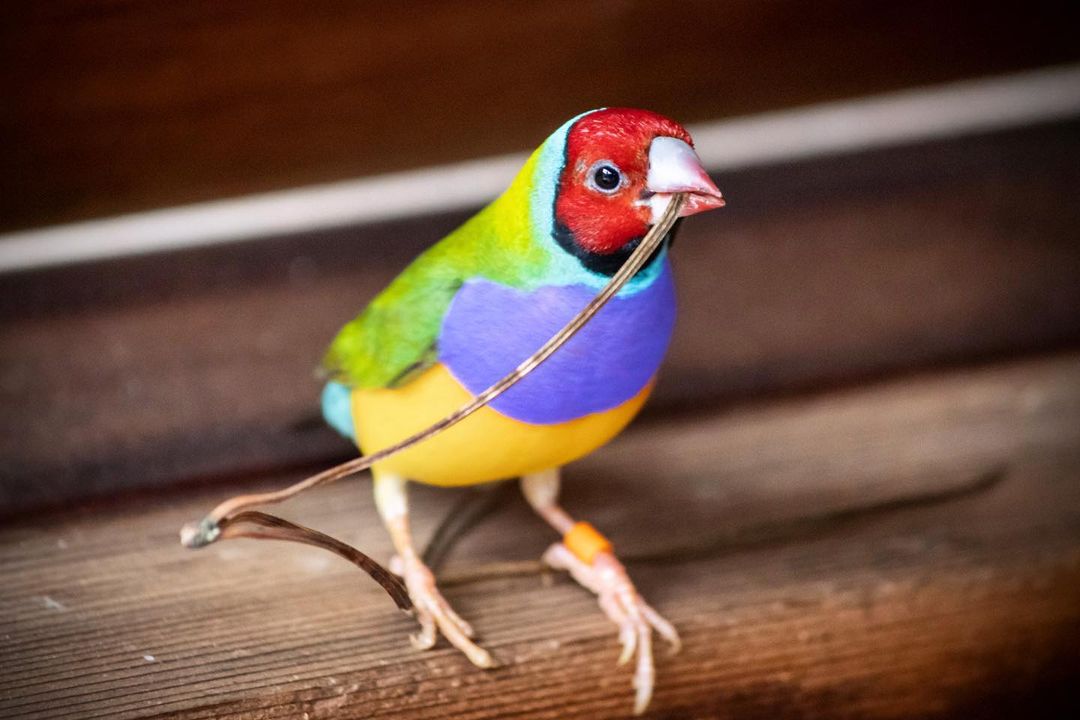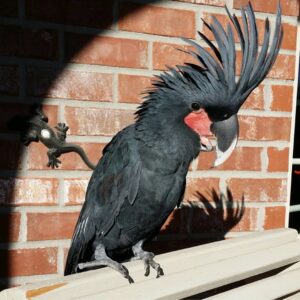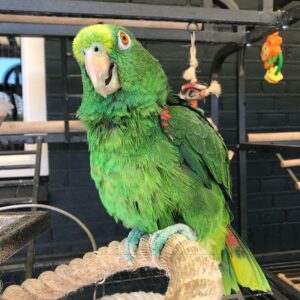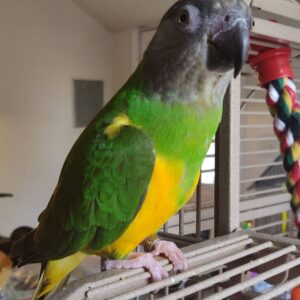Description
Finches for sale
Finches for sale,Finches are very neat, they are also quiet and easy to care for. A perfect pet for people with limited space and time. Unlike a parrot, a finch does not require daily interactive attention.
Pet finches make lively, interesting, cheerful companions. In today’s busy world a finch bird is an ideal pet for many homes. Finches come in a wide variety of colors, patterns, and personalities.
Most finches are easy to care for, active. entertaining, and hardy. They are quiet and many species can live in a fairly small area, so they make a good apartment pet. They are also less costly to purchase than many parrots and softbilled birds.
These lovely charmers are undemanding, so adding them to your home doesn’t add an unwelcome burden to a busy schedule. Unlike a parrot, that may pout if you are unable to play with it every day, pet finches prefer to play among themselves.
You can just sit back, relax and enjoy their antics. Of course being ‘bird-oriented’ rather than ‘people-oriented’, they are unlikely to become finger tame birds.
Care and feeding of Finches(for sale)
Fresh food and water must be provided daily. Finches are easy to feed.
Bird Food:
Finch seed is the everyday food for a finch bird. Seed mixes designed for finches are readily available. A single finch will eat about one teaspoon of seed a day and will rarely overeat. However, they may need to eat a bit more when the weather is cold or during their moult.
Supplements:
Supplements are very important and can be put in an extra dish and rotated for variety.
Sprouts and Millet:
Sprouted seed and spray millet are especially good for all finches.
Protein:
For proteins, you can offer supplements such as egg food, milk soaked whole wheat bread, insects such as meal worms and fruit flies, mynah bird pellets, and even a bit of dry dog food.
Vitamins:
Cod liver oil will provide Vitamin D to birds who get no direct sunlight.
Grit:
Charcoal with grit is essential to aid in digestion and it contains valuable minerals and trace elements. Grit should be provided in a special cup or sprinkled over the bottom of the cage floor.
Calcium:
Provide a cuttlebone because the calcium it provides will give your bird a firm beak, strong eggshells when breeding, and will help prevent egg binding. The lime in the cuttlebone also aids in digestion.
Occasional Treat Supplements:
Supplements to offer sparingly include greens such as: spinach, chickweed, carrot tops, watercress, dandelions, and leaf lettuce, as well as an occasional bit of apple or pear. Finch treats of seed with honey, fruits and vegetables are fun for your bird too, as well as nutritious!
Water:
Give your finch fresh drinking water every day. You can also add soluble vitamins and minerals to the water.
Bird Baths:
Give your finch a bath at least once a week and daily during the summer by placing a dish on the bottom of the cage. A bath with an enclosure will help to keep the water splashing to a minimum. Bathing is very important to finches during moulting and breeding.
Bird Grooming:
Their nails will occasionally need to be trimmed, but be careful never to clip into the vein as the bird can quickly bleed to death. Bird nail trimmers and styptic powder to stop the bleeding are available at pet shops.
Handling and Training
Finches “for sale” are simply enjoyed for their busy antics, plumage, and some for their song. Most finches will not be handleable, though there are a few finches species that with time and patience can be finger tamed.
When you need to handle your finch for such things as trimming its nails, place your palm on it’s back and wrap your fingers around the bird with your thumb and forefinger on either side of it’s head. Finches rarely bite, and even if they do, they do not have a harmful or dangerous bite.
Speech and Sound of Finches
Finches do not have the ear-splitting screeches of parrots, thus they may be a decent alternative for folks who live in close quarters. Their vocalizations are largely “peep” and “meep” sounds, which are mostly made by males. Their calls/songs can be annoying at times, and finches spend a significant portion of their day vocally communicating with one another.
Behavior
House Finches are gregarious birds that collect at feeders or perch high in nearby trees. When they’re not at feeders, they feed on the ground, on weed stalks, or in trees. They move fairly slowly and sit still as they shell seeds by crushing them with rapid bites. Flight is bouncy, like many finches.
Speech and Sound
Finches are not capable of emitting the ear-splitting screeches of parrots and therefore might make a good choice for those with close neighbors. Their vocalizations are mostly “peep” and “meep” sounds,typically by the males. Their calls/songs can be persistent at times and finches spend a large portion of their day vocally communicating with one another.






Reviews
There are no reviews yet.